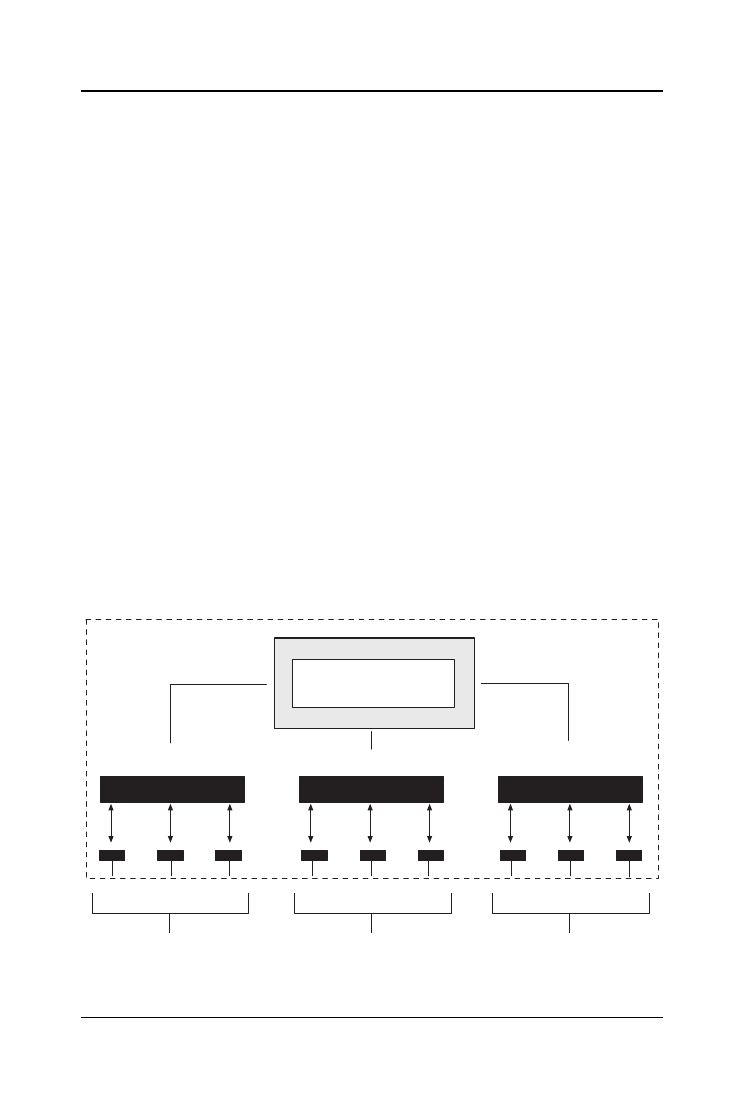
Appendix D Frequently Asked Questions 15
KNS1600/R User’s Guide - Rev. A00 Kingston Technology Company
Appendix D Frequently Asked Questions
What is a switch and what does it do?
Switching hubs are low-latency devices that allow you to maximize the
bandwidth of a network using concurrent access within the unit. Switches
allow you to segment LANs, connect LANs of different speeds, or extend the
collision domain of an existing LAN.
What’s the difference between a repeater and a switch?
A repeater is a device that extends the diameter of a network by regenerating
and forwarding received Ethernet packets. It repeats incoming signals to all
other ports on the device.
Like a repeater, a switch can also extend the diameter of a network. However,
a switch can also extend the collision domain of a network, like bridging a
10Mbps Ethernet LAN with a 100Mbps Fast Ethernet LAN. See the
illustration below. A switch can also be configured to operate in half-duplex or
full-duplex mode, whereas a repeater can only operate in half-duplex mode.
Switching Fabric
Repeater (Shared Bus) Repeater (Shared Bus) Repeater (Shared Bus)
100 100 100 10 10 10 100 100 100
Switching fabric isolates each of the shared buses
(repeaters) into its own collision domain.
Collision Domain 1 Collision Domain 2 Collision Domain 3


















